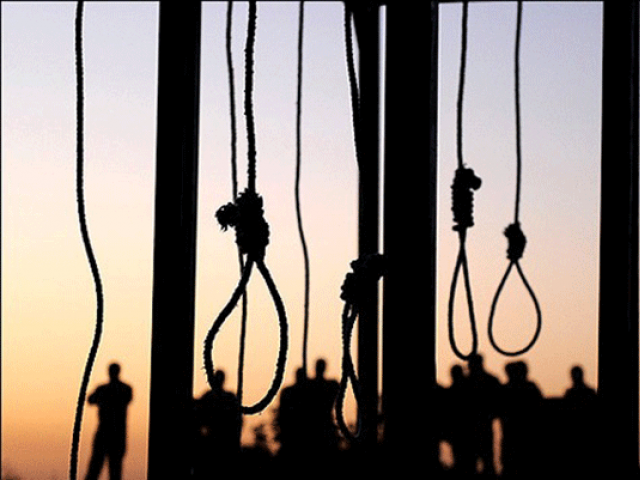Holding ground: Islamabad defends capital punishment amid outcry
FO says country’s constitution, legal system allow death penalty

PHOTO: iranhrdc.org
Pakistan continues to defend its decision to lift the moratorium on death penalty even after the United Nations and the European Union (EU) have voiced their concerns over frequent executions of convicts in the country since December last year.
“Pakistan is not violating any international law,” said Tasnim Aslam, spokesperson for the Foreign Office (FO), at her weekly briefing on Thursday.
“Our constitution and legal system allow death penalty within legal parameters and the condition of a fair trial.”
Her statement came after the UN and the EU sought immediate ban on the death penalty. The UN reminded Pakistan of its international obligations to ban capital punishment.
Its statement said that under international treaties, in particular the International Covenant on Civil and Political Rights (ICCPR) as well as the Convention on the Rights of the Child, Pakistan had legally committed itself to ensuring due process and not imposing the death penalty. “Moving away from the death penalty will contribute to human development, dignity and rights.”
Admitting that Pakistan was a signatory to the ICCPR, the FO spokesperson said one of its provisions allowed countries that have not abolished capital punishment to impose the death penalty in most serious crimes.

The UN also expressed concerns over reports that some of the executed convicts were minors when the offence was committed. “The right to life is a fundamental human right,” said a statement issued by the organisation. “UN Secretary-General Ban Ki-moon has stated that the death penalty has no place in the 21st century. According to some estimates, there are more than 8,000 prisoners on death row.”
The UN said it was concerned about cases where the death penalty was handed to minors but welcomed reviews of these cases, such as the recent case of Shafqat Hussain.
The statement said the UN had consistently called for an unequivocal end to the execution of anyone, anywhere, who was convicted of committing a crime when they were under the age of 18. “There is no scientific proof that the death penalty serves as a deterrent or contributes to combating crime or violent extremism.”
GSP Plus status
Responding to a question, the FO spokesperson said the government’s decision to lift the moratorium on death penalty would not affect the GSP Plus status granted to the country by the EU for greater market access to its products.
“The EU may not agree, but it understands our perspective. Our engagement will continue. We do not expect this issue would impact the GSP Plus status for Pakistan.”
The EU termed the death penalty an “inhumane and cruel act”, insisting that capital punishment did not act as a deterrent against crimes.
Published in The Express Tribune, March 20th, 2015.



















COMMENTS
Comments are moderated and generally will be posted if they are on-topic and not abusive.
For more information, please see our Comments FAQ